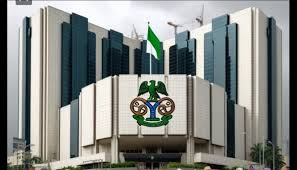Business
Micro-Finance Bankers Query Stamp

Participants at the Women in Management, Business and Public Service (Wimbiz) annual lecture in Lagos recently
The National Associa
tion of Micro-Finance Banks (NAMB) has told the Federal Government to explain the N50 stamp duty policy imposed on every transaction made on current accounts to justify its implementation.
The Treasurer of the NAMB, Mrs Frances Becky, made the call in an interview with newsmen on Tuesday, in Abuja.
“We are calling on the government to reveal that policy especially as it affects the very poor people whom they want to reduce their poverty level.
“ We cannot aim to reduce poverty and at the same time we are seen to be doing things that will make people poorer.
“The government should be able to distinguish the payment because to place everybody at the same level when we are not equal has an implication.
According to Becky, the stamp duty fee is hampering the activities of the micro-finance sub-sector because the banks are turn between who bears the cost of the fee.
“If a customer through a commercial bank pays in N10, 000, automatically a stamp duty charge of N50 is deducted and there is a VAT on that N50 which immediately hits your account. “That account is run by the bank as a business account and the money is in transit to some other customer’s account. “ The question will now be, ‘ who will bear the cost’, should it be transferred to the customer, if you transfer it to the customer, they will definitely raise an alarm’’, she stated.
She noted that if the charge was imposed on the customer, it would discourage most of them from banking because they would rather save their money at home than paying for every transaction in the bank.
Becky explained that the stamp duty charge was established by the office of the postmaster-general to help generate revenue for the government and enforced by the CBN.
She argued that the ideal thing would have been to give exemptions or considerations to MFBs, who she said, were rendering services to the poor people.
“The irony of the matter is that it now seems like we are charging this people whom we are encouraging to come to the bank for doing business in the bank.
“ It is making the poor people poorer and the rich people are not feeling the impact of the charge because the same charge for N1, 000 deposits is the same charge for N50 million.
“Everywhere in the world, the richer you are the more tax you pay, so why would we do it differently in Nigeria, this policy is misdirected, it is a policy summersault.
She further said it would be wise for the government who implemented policies to enlighten the public on the importance of such policies before it was enforced.
“ If the people are also informed about what the government aims to do with such funds, it would also help to justify the charges,’’ she said.
Business
NCDMB, Partners Sweetcrude On Inaugural Nigerian Content Awards

The Nigerian Content Development and Monitoring Board (NCDMB), in partnership with a firm, Sweetcrude Ltd., has announced detailed selection criteria for the inaugural “Champions of Nigerian Content Awards”, designed to honor outstanding contributions to local content development in Nigeria’s oil and gas sector.
The Tide learnt that the event, scheduled to hold 21st May, 2025, at the NCDMB’S content tower headquarters in Yenagoa, capital of Bayelsa State, will recognize individuals and organizations that have demonstrated exceptional commitment to advancing Nigerian Content in 2024.
The Tide further gathered that the ceremony will coincide with the Nigerian Oil and Gas Opportunity Fair (NOGOF), which promises to spotlighting industry excellence and contributions to national economic transformation.
A statement by the Board’s Directorate of Corporate Communications and Zonal Coordination says the event has 12 Award Categories, which include, “Nigerian Content Icon of the Year”, “Nigerian Content Lifetime Achievement Award”, “Nigerian Content International Upstream Operator of the year”, and the “Nigerian Content Independent Upstream Operator of the year”.
Others are, “Nigerian Content Midstream Operator of the year”, “Nigerian Content Downstream Operator of the year”, “Nigerian Content International Service Company of the year”, Nigerian Content Indigenous Service Company of the year”, and the “Nigerian Content Innovator of the year”.
Also included are, “Nigerian Content Financial Services Provider of the year”, “Nigerian Content Media Organization of the year”, and “Women in Leadership Award for Promoting Gender Equality and Empowerment”.
According to the NCDMB, the criteria for oil and gas operators will include key and empirical benchmarks such as Production output for crude oil and gas volumes, Compliance with Nigerian Content Plans (NCPs) and Nigerian Content Compliance Certificates (NCCCs).
Other criteria are adherence to NOGICD Act reporting requirements, such as submission of Nigerian Content Performance Reports and Employment & Training Plans.
The Board’s statement added that similar criteria will apply to financial institutions, media organizations, and individuals, ensuring a transparent and merit-based selection process.
“Winners for the Nigerian Content Icon of the Year, Innovator of the Year, and Women in Leadership Award will also be selected based on measurable performance indicators.
“The Advisory Committee of Industry Titans will Oversee the process to uphold the prestige of awards. The Committee consist of distinguished experts set up to oversee nominations and validate winners”, the NCDMB said.
Members of the committee, according to the Board, include: Pioneer Executive Secretary of the NCDMB, Dr. Ernest Nwapa; Secretary-General, African Petroleum Producers Organization, Dr. Omar Farouk; and former Zonal Operations Controller, DPR, Mr. Woke Akinyosoye.
The Statement quoted the Executive Secretary, NCDMB, Engr. Felix Omatsola Ogbe, as emphasizing that the awards aim to becoming the oil and gas sector’s equivalent of the Oscars, celebrating genuine impact rather than mere participation.
“This recognition is reserved for those who have gone beyond compliance to drive tangible growth in Nigerian Content.
“With a focus on credibility, compliance, and measurable impact, the Champions of Nigerian Content Awards is poised to set a new standard for excellence in Nigeria’s energy sector”, the NCDMB Executive Scribe said.
By: Ariwera Ibibo-Howells, Yenagoa
Business
Nigeria’s Debt Servicing Gulped N696bn In Jan – CBN

Nigeria’s apex Banking institution, Central Bank of Nigeria (CBN), has declared that Federal Government’s debt servicing increased to N696billion in January 2025.
The CBN’s recently published Economic Report revealed a precarious fiscal position, which worsened in January 2025 as debt servicing obligations exceeded total retained revenue by a wide margin.
According to the report, the Federal Government’s debt servicing obligations for the month stood at N696.27bn, while total retained revenue amounted to only N483.47bn, indicating that debt service alone consumed about 144 per cent of all government earnings.
This development highlights the growing debt burden and dwindling fiscal space facing Africa’s largest economy.
According to the report, despite slight improvements in some revenue categories, the retained earnings were grossly inadequate to cover obligatory debt repayments, exposing the government’s continued reliance on borrowing to meet basic obligations.
The report further revealed that retained revenue in January 2025 only recorded a marginal 0.89 per cent increase when compared with the N479.21bn generated in the corresponding month of 2024.
”FGN retained revenue declined in the review period, owing largely to lower receipts from Federal Government Independent Revenue and FGN’s share of exchange gain.
“At N0.48tn, provisional FGN retained revenue was 69.19 and 70.40 per cent below the levels recorded in the preceding period and monthly target, respectively”, it revealed.
While this points to stagnation rather than growth, the marginal rise was wiped out by the overwhelming debt service obligations.
The retained revenue components showed that the Federation Account contributed N167.69bn, while the VAT Pool Account delivered N90.73bn.
By: Corlins Walter
Business
Wage Award: FG Plans 5 Months Arrears Payment

The Federal Government has announced plans to commence the payment of the outstanding N35,000 wage award arrears owed workers in the Federal Civil Service.
A statement issued by the Office of the Accountant-General of the Federation (AGF), which was signed by the Director of Press and Public Relations, Bawa Mokwa, said the outstanding arrears will be paid in instalments, with workers set to receive N35,000 per month for five months.
It clarified that the first tranche of the wage award arrears would be released immediately after the April salary payment.
“The wage award arrears was not paid with the April 2025 salary; it will come immediately after the salary is paid”, the statement read.
The Federal Government had earlier disbursed wage awards to federal workers for five months as part of efforts to cushion the impact of economic reforms. However, five months’ arrears remained unpaid.
The AGF office further reiterated the government’s commitment to fully implementing all policies and agreements relating to staff remuneration and welfare, noting that such efforts were geared towards enhancing productivity and operational efficiency across ministries, departments, and agencies.
The N35,000 wage award was introduced in 2023 as a palliative measure to support workers following the removal of the petrol subsidy and other economic adjustments.
In January this year, the Federal Government assured workers that it would clear the arrears of the N35,000 wage award, just as it also said the government had resumed the payment of the wage award.
The government also reiterated its commitment to addressing issues in the National Minimum Wage agreement reached with the Organised Labour in 2023.
The Minister of Labour and Employment, Nkeiruka Onyejeocha, had disclosed the government’s commitment towards implementing agreements with trade unions during separate meetings with the leadership of the Trade Union Congress and Congress of University Academics, in Abuja.
The Nigeria Labour Congress had criticised the Federal Government over the delay in the payment of the minimum wage for certain workers in the federal civil service.
Also, the Federal Government had earlier blamed the delay in payment on the prolonged approval of the 2025 budget.
By: Corlins Walter

